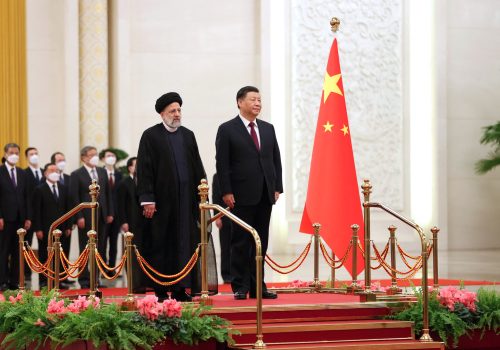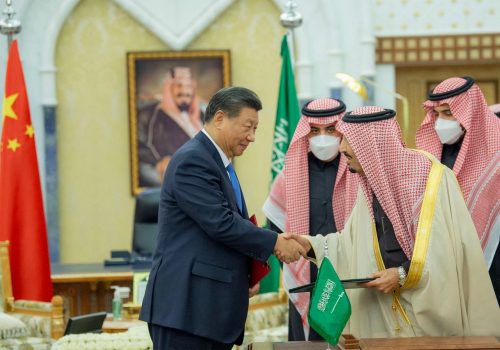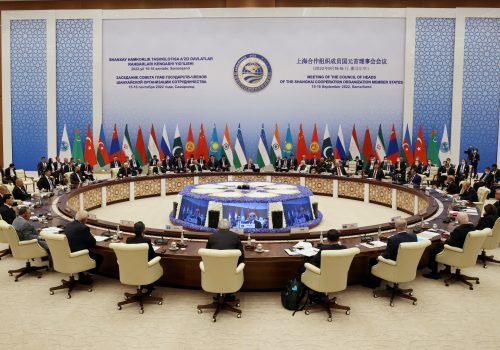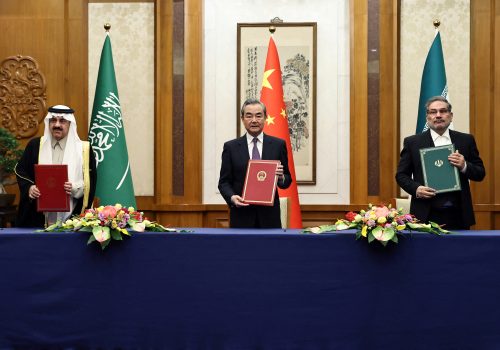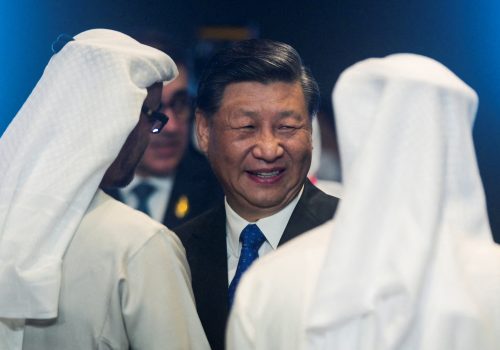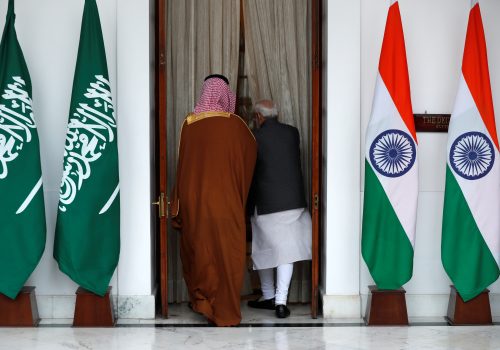The Gulf’s New De-Escalation Foreign Policy Among World Powers
SUBSCRIBE TO THE CHINA-MENA PODCAST ON THE APP OF YOUR CHOICE
Key takeaways
- The Gulf’s Shift Towards De-Escalation and Development in Foreign Policy
- African Nations: Resources, Youth, and the Impact of Foreign Influence
- Evolving Notions of Security and Power: A Changing Perspective
- The Changing Geopolitical Landscape of Asia
- Gulf Nations’ Complex Ties with Global Powers
- Pursuing Rapprochement and De-Escalation in International Relations
- The UAE’s Focus on Development and Collaborative Initiatives
- The Growing African Community in the Emirates
- Geopolitical Considerations and Africa’s Emerging Opportunities
Chapters
00:00 – Introduction
02:02 – Shifting from Security to De-Escalation Strategy
05:28 – Abrahamic Accords: A Shift into Identity Conflict
07:59 – Cooperation for Addressing Cosmic Challenges
11:58 – Asia’s Expanding Concept: India and China Included
14:56 – Gulf Countries Facing Tough Choices in Geopolitics
18:31 – Trump’s Masterful Attempt to De-Escalate Korea
20:11 – Prioritizing Local Development over Power Competition
24:33 – Japan’s Tech Support for Gulf’s Energy Transition
28:56 – Investing in Diversification for Energy Security
30:18 – Emirates’ Growing Interest in Africa’s Development
35:27 – Questioning the Necessity of African Economic Development
36:45 – Seizing the Early Opportunity in West Africa’s Urbanization
40:15 – Creating Safe Spaces for Interaction and Conflict Avoidance
45:56 – Outro
In this episode
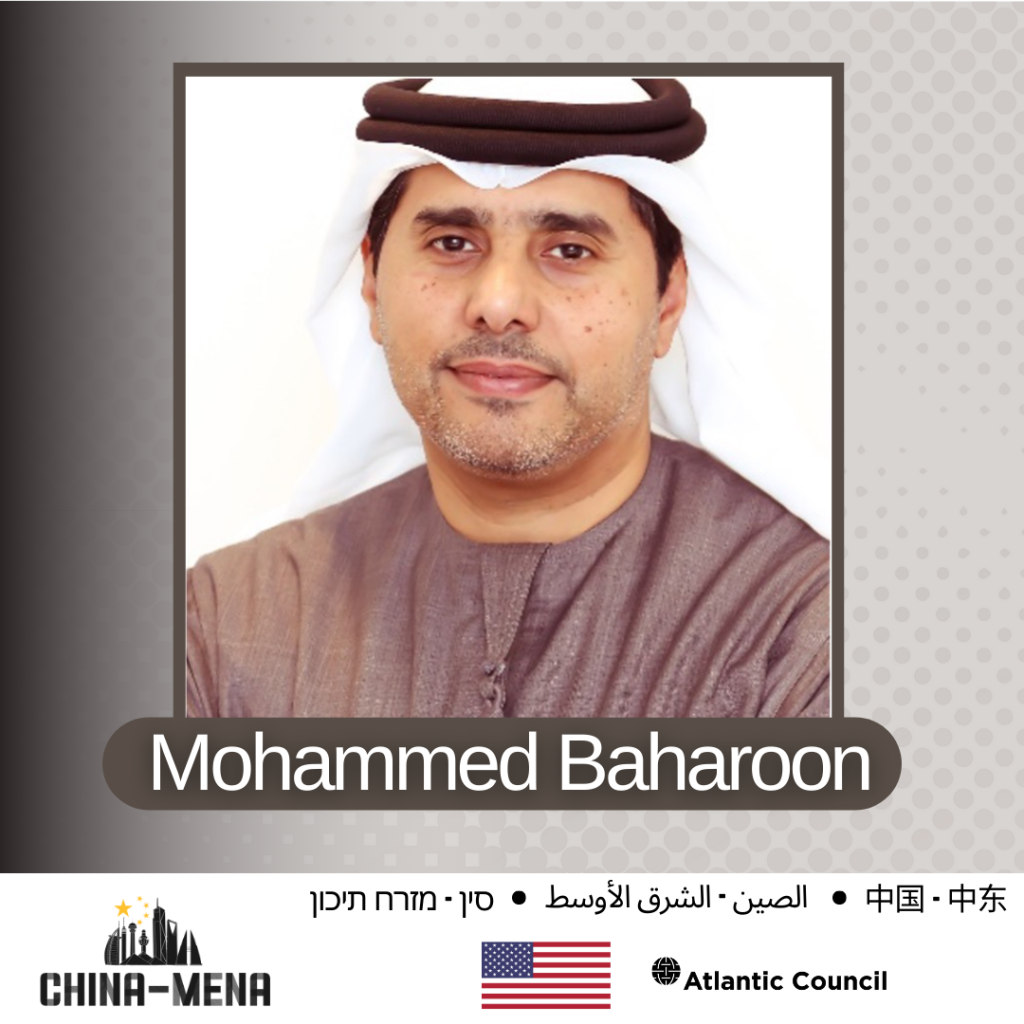
Mohammed Baharoon
Director General
Dubai Public Policy Research Centre – B’huth
Mohammed Baharoon is the Director General of the Dubai Public Policy Research Center (B’huth), established in 2002 in Dubai, UAE. He pursued a career in media as a reporter for “Al Arabi” Magazine and Al Ittihad newspaper, and then as an editor for Gulf Defence Magazine before starting as director of research at b’huth and focusing on the interplay between geostrategy and policy making in governance, stability, capacity building and future proofing. Mohammed has also worked as the deputy director of Watani, the UAE’s first initiative on national identity, and is also a founding member of the board of the Bussola Institute, a think tank in Brussels that focuses on the changing and emerging aspects of partnership between the EU and the GCC member states.Mohammed Baharoon has a Master’s degree in English Literature from Texas Tech University in 1995 and an English Major from Kuwait University in 1987.
About
In this episode, our host Jonathan Fulton is joined by esteemed guest Mohammed Baharoon to discuss the shifting dynamics of Gulf countries’ foreign policies– which are now seeing the world order based on interconnectedness, not polarity.
From the focus on developmental issues and sustainable economies to the changing perspectives on security and power, our experts explore the implications and potential solutions to foster stability in the region, including China’s support for GCC-Iran normalization, Turkey’s improving relations with the UAE and Saudi Arabia, and the Abraham Accords.
Join us as we tackle crucial topics such as the impact of China’s presence in Africa, the concept of de-escalation as a security strategy, and the evolving landscape of geopolitics in the region and the new Gulf of de-escalation.
Featured article: The New Gulf of De-Escalation by Mohammed Baharoon
Hosted by
Fostering access, connectivity, and de-escalation is the new approach to address security concerns, shifting away from military solutions
About the China-MENA podcast
The China-MENA podcast features conversations with academics, think-tankers, and regional specialists on Chinese Influence in the Middle East and informs US and MENA audiences in the policy and business communities about the nature of China’s outreach to the region.
At a time when China’s global footprint is getting deeper and deeper, it has never been more important to understand its foreign policy and the Middle East is one of the world’s most consequential regions: home to major religions, diverse cultural and social heritage, central to global energy markets, and of course, geopolitics, linking people and markets in Asia, Africa and Europe. This show will help you understand what China is doing in the region, and how the region is engaging with China as an increasingly important external power.
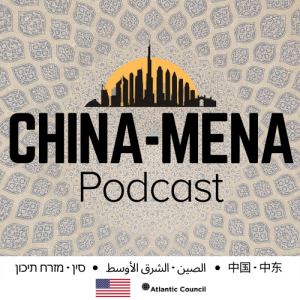
Podcast series
Listen to the latest episode of the China-MENA podcast, featuring conversations with academics, government leaders, and the policy community on China’s role in the Middle East.
Recommended reading
This podcast was funded in part by a grant from the United States Department of State. The opinions, findings, and conclusions stated herein are those of the author and do not necessarily reflect those of the United States Department of State.
Further reading
Thu, Mar 30, 2023
US Perceptions of China’s Middle East Presence
China-MENA Podcast By
Dr. Julian Gewirtz and Chris Backemeyer join us to provide unique insights from a US perspective on the potential implications of China's growing presence in the Middle East and its efforts to replace US dominance on global governance, as well as the priorities of the US in the MENA region.
Wed, Sep 6, 2023
Global Development Initiative and Global Security Initiative: China’s Blueprint for the New World Order
China-MENA Podcast By
Tuvia Gering and Michael Schuman shed light on the Chinese Communist Party’s approach and practical implementation tactics of Beijing's global development initiatives. They also examine Beijing's progress support, capacity building, and knowledge-sharing efforts—including global development centers and vocational training programs.
Tue, Feb 21, 2023
The Middle East in the US-India-China Strategic Triangle
China-MENA Podcast By
Raja Mohan joins us to discuss India’s role in geopolitics in the Middle East as well as the perspective of New Delhi on the influence of the US-China tug-of-war within the region, and provide some insights about maritime security in the Indian Ocean and the growing influence of mixed cultures in the Gulf.
Image: Sheikh Mohamed bin Zayed Al Nahyan, President of the United Arab Emirates and Recep Tayyip Erdogan, President of Turkey, stand for a photograph wearing a 2023 UN Climate Change Conference (COP 28) wristbands during an official reception at Qasr Al Watan in Abu Dhabi, United Arab Emirates, July 19, 2023. Abdulla Al Neyadi/UAE Presidential Court/Handout via REUTERS THIS IMAGE HAS BEEN SUPPLIED BY A THIRD PARTY.








